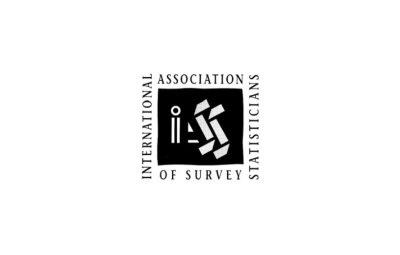We regret to inform that Seppo Laaksonen, ISI Elected member and Professor Emeritus of University of Helsinki, passed away after a serious illness on December 20, 2020, in Helsinki, Finland. He was 76 years old.
Seppo Laaksonen was an ISI Elected member since 1994 and over the years he served the ISI community in many significant ways. He was IASS Scientific Secretary from 2001 to 2003 and Vice President from 2007 to 2009. He participated in the activities of ISLP (IASE’s International Statistical Literacy project) as the Finnish country coordinator and was a constant encourager and supporter of the project. He served as President of the Finnish Statistical Society.
Seppo Laaksonen was an internationally recognized researcher in the field of survey statistics and application. Here we highlight a few selected areas: innovative use of register information, treatment of missingness in surveys, and comparability in multinational surveys.
Seppo was a pioneer in the use of Statistics Finland’s micro-merged population and business registers for research of international impact. As an employee of the agency, he could utilize the longitudinal databases containing information on companies and their employees in research in micro econometrics, business demography and related fields. He published important papers in econometric journals in the 1990s. His effective networking led him to host the first CAED (Comparative Analysis of Enterprise Data) conference in 1996 in Helsinki. Wanting to ensure wide access to the workshop results, Seppo spent a lot of time and effort for the 500-page proceedings book that was published in 1997. The event was a success, and since then CAED conferences have been organized on a regular basis.
The statistical treatment of non-response was his long-term research topic. Household survey data merged with unit-level register information offered good possibilities for research and publication of innovative articles in international journals. Participating in a multidisciplinary interest group with researchers from different countries inspired him to organize the Sixth International Workshop on Household Survey Nonresponse in 1995 at Statistics Finland. The event and the extensive proceedings book were a success. Seppo contributed to numerous subsequent workshops hosted by different countries.
Our third example, the European Social Survey (ESS), is a widely appreciated academy-driven cross-national social survey launched in 2001 and implemented semi-annually. Data infrastructures varied widely between participating countries and coordination was needed to ensure the high quality of national sampling and weighting procedures. Seppo worked for up to 17 years as a member of the ESS Sampling and Weighting Expert Panel.
Before his academic career, Seppo Laaksonen worked at Statistics Finland in wage statistics and as methods expert and Research Manager. He also worked for Eurostat, the statistical office of the European Union. He played a major role in the methodological advancement of the official statistics system of Finland. He had a significant academic career at the University of Helsinki. Over the years, several student generations enjoyed his courses in survey statistics. Seppo Laaksonen retired in 2012 as Professor of Social Statistics.
After retiring, he continued his international activities and research. His last book, Survey Methodology and Missing Data, Tools and Techniques for Practitioners, was published by Springer in 2018. The last research paper was on happiness research, a late scientific hobby. The paper entitled as ‘Age happiness is more complex than U-shaped’ was published in Journal of Happiness Studies in 2018.
The books and papers of Seppo Laaksonen were connected to real world problems, notably from the world of official statistics. He wrote applied papers in crime statistics, demography, education statistics, household consumption and time use, and more. Seppo participated in international research projects, often under the European Union’s Framework Programmes. He was a frequent traveller and made statistical consultation missions funded by the European Commission. Representative examples are consultation visits to Ethiopia, Hungary, Moldova and Slovenia.
Seppo was an enthusiastic sportsman, and regularly took part in rowing and cross-country skiing events. Good examples are the national 60 km rowing race every summer and the 50 km national cross-country skiing competition every winter. The tale of Southampton University even tells of a cheerful visiting scientist from Finland who skied to the department every morning on roller skis. It was summer time in 2001. Also this snapshot illustrates the positive nature and open-mindedness of Seppo Laaksonen, our unforgettable friend and colleague.
Risto Lehtonen, University of Helsinki
Reija Helenius, Statistics Finland




